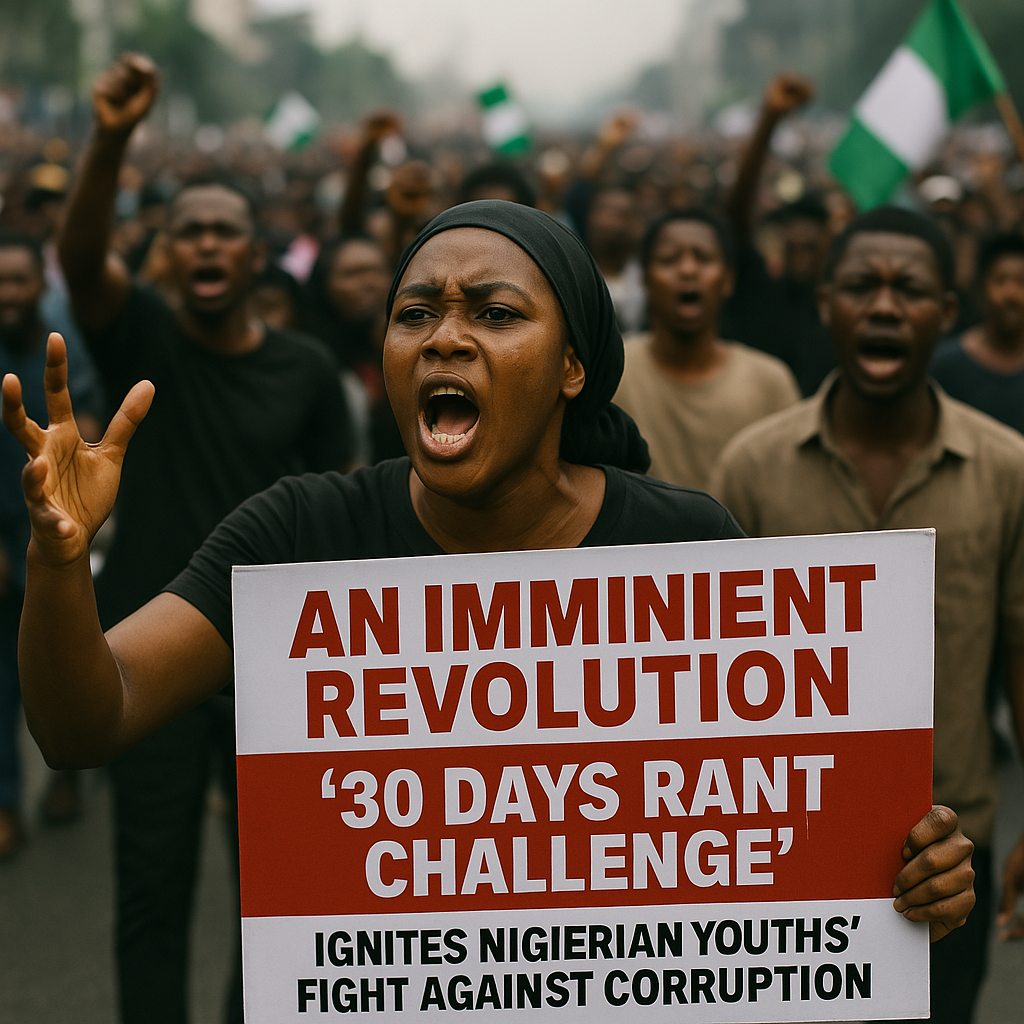The air in Nigeria is thick with tension, a palpable sense of urgency that can no longer be ignored. The courage of the Nigerian youth, long suppressed by endemic corruption and systemic oppression, is now growing louder. As the suffering of the common man escalates, so too does the resolve of a generation determined to reclaim their nation from the hands of the corrupt elite.
A Democratic Revolution Betrayed
In the recent elections that brought Tinubu to power, young voters faced a stark reality: their votes did not count. This betrayal could have been tolerated if the status quo had remained merely precarious. However, the abject suffering, rampant human rights violations, and the total collapse of democratic institutions have become the last straw. The disillusionment felt by the youth is not just a fleeting sentiment; it is a rallying cry for change. Reports indicate that over 40% of young voters felt disenfranchised in the last election, highlighting the urgent need for reform (BBC News).
The emergence of what I call the "Godzilla youth" during the last election was just the tip of the iceberg. They surfaced tentatively, like a creature rising cautiously from the depths of the sea, but now they are fully awake, fueled by anger and a desire for justice. The youth are no longer content to merely voice their frustrations; they are ready to take back their country from an "evilly corrupt power cabal" that has dragged Nigeria into the murky waters of retrogression.
The 30-Day Rant: A Catalyst for Change
Yet, the courage displayed by these young individuals is nothing short of heroic. Their curses, tantrums, and unprecedented disregard for the fear that typically paralyzes the average Nigerian reflect a deep-seated frustration. This collective rage may yet be the "vitriolic acid" needed to dissolve the corruption that has plagued Nigeria for decades. The youth are not just ranting; they are demanding accountability and transparency, and they are doing so with fervour that cannot be ignored.
The Genesis of the '30 Days Rant Challenge'
The movement began with a heartfelt video by Ushie Rita Uguamaye, known as Raye, a National Youth Service Corps (NYSC) member. In her impassioned plea, Raye highlighted the exorbitant cost of living, noting that a crate of eggs now costs over ₦6,000, far exceeding the average prices reported in 2024. She also decried the inadequacy of NYSC allowances to sustain corps members. (You may also want to read: NIGERIA’S SHACKLED USHIE RITA UGUAMAYE: THE PRICE OF FREE SPEECH IN THE TINUBU GOVERNMENT.)This candid expression of frustration resonated with many, sparking widespread online outrage and giving birth to the #30DayRantChallenge. OkayAfrica+1Herald+1Herald+1OkayAfrica+1
Amplifying Voices Through Digital Platforms
The challenge quickly gained momentum on social media platforms like Twitter, TikTok, and Instagram. Nigerian youths began sharing daily grievances over a 30-day period, addressing issues such as economic hardship, governance concerns, and societal challenges. This digital movement has provided a platform for citizens to voice their frustrations and demand accountability from their leaders.
Escalating Protests and Government Response
The online dissent has spilled into the streets, with thousands of young Nigerians protesting in major cities like Abuja and Lagos against the elimination of fuel and electricity subsidies. These demonstrations, inspired by similar protests in Kenya, have been met with heavy police presence, tear gas, and curfews. The government's response has been heavy-handed, with reports of detentions and clashes resulting in casualties. statesmandigital.com+3WSJ+3The Guardian+3
The Power of Collective Action
As more young people join this movement, the potential for change becomes increasingly tangible. The voices of women, in particular, are rising to the forefront, challenging societal norms and demanding equal representation in the fight against corruption. This intersectionality adds depth to the movement, highlighting that the struggle is not just about politics but about the very fabric of the Nigerian society. Recent studies show that female participation in protests has increased by 30%, showcasing the breadth of this movement (Al Jazeera).
The power of collective action is evident in the way that these young voices are uniting. They are leveraging technology to organize protests, share information, and amplify their messages. This digital revolution is a crucial component of their fight, as it allows them to bypass traditional media channels that have often failed to represent their struggles accurately.
A Call to Action

Comments
Post a Comment